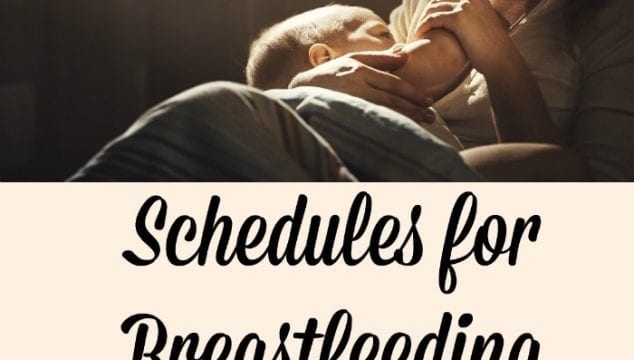
Isn’t it confusing sometimes whether you should feed your baby on demand or put her on a schedule? As many things with parenting, everyone has their two cents and opinion and your mind spins with the possibilities. This article will talk about schedules for breastfeeding and formula-feeding babies.
Rigid schedules for breastfeeding babies? What about formula-feeding babies?
The main thing about schedules for breastfeeding or formula-feeding babies is that I want to tell you today that a schedule is only as rigid as you make it. Just because you set your alarm for 6:30 a.m. does not mean you don’t hit snooze 2 3 a few times does it? Just because you tell your friend you want to meet for lunch at 12 doesn’t mean you can’t call her and tell her you’re starving and ask if you can meet at 11:45, instead, right? So, the first thing about schedules for any baby, not just breastfeeding babies, is that you do not have to be married to the clock to the point you are running a boot camp.
How rigid you make your schedule generally depends on your particular personality. I am, personally, a Type-A personality (INTJ for you Myers Briggs people, except I am sometimes an “E” oddly enough). A Type-A personality is generally much more conscious of the time on the clock and, being an INTJ, I generally need to know what time it is at all times (generally you would wear a watch, but my cell phone now does the job just fine, now). Basically, I am a planner. I like to know roughly what I am doing every day and this includes on vacation (I’m sure, on vacation, my mother-in-law thought it was crazy to think about dinner when we just had lunch LOL). I honestly can’t help it.
So, when I birthed a highly unpredictable, inconsistent baby, this essentially drove me a little crazy. BUT, he was also unable to get on a schedule until he was older (past 7 months, in fact!). I just had to deal and like many things you imagine go differently in your head before you actually have a baby, I had to adjust my thinking.
Nope, he didn’t get hungry at the same times every day.
Nope, he didn’t wake up at the same times every day. EVER.
Nope, he couldn’t go 3 hours between breastfeeding sessions at a young age, like the books told me he could, and he NEVER got to 4 hours. EVER. (He can barely do it now and I suspect it’s a blood sugar thing.)
Yet, I still had a “schedule” which I now call a “routine” of feeding him every X hours based on his age and abilities as well as sleep after Y hours, based on his behavior / sleepy cues, age, and sensitivity to over-tiredness (which got better as he got older). That doesn’t mean that if he was hungry sooner I would make him wait, or force-feed him if he wasn’t hungry until later (he rarely refused breastfeeding anyway!).
As your baby grows older, he will generally become more predictable (if he didn’t start out that way) as his brain and nervous system mature and sleep organizes, even if it’s never identical to the day before. We, eventually, did get to a true by-the-clock schedule. Keep in mind that I did have to modify my own natural tendency and do what worked best for my baby. And, some babies actually function a lot better on a more predictable routine and schedule, even if your natural tendency is to “go with the flow.”
Some babies are SO easy-going that they won’t cry when they get hungry! And, if you don’t have a rough schedule, you could actually be skipping feedings, when you shouldn’t. Rare, but true. Slow to adapt babies generally enjoy more predictability and many will thrive on the sometimes elusive eat-play-sleep routine from a very young age.
Feed on demand or on a schedule?
There is not just one answer here to the question of whether you breastfeed / formula-feed on demand or feed on schedule. I fed on demand for quite awhile, because it was what worked best for my son and made the most sense to me, at the time. It’s not like he could go into the pantry and get a snack anytime he wanted. To this day, he eats more frequent, smaller meals. He has a very fast metabolism and he is very high energy.
HOWEVER, breastfeeding a baby every two hours during the day past the newborn phase is not always a good idea. I have had clients with babies who have not gained enough weight, because if you feed more frequently, your baby may not be getting the richer, higher calorie, and fattier hindmilk. For those parents, the answer was to start spacing out feedings so their baby would take a fuller feeding and get that hindmilk. This brings me to my next point:
Just because your baby hasn’t gotten on a schedule on his own, does not mean he can’t.
When it comes to sleep, just like waiting too long to put your baby down can lead to short naps when she’s younger, putting her down too soon when she’s younger can result in short naps, too! Confusing, I know.
The bottom line is that all babies and families have different needs and it’s okay if you don’t know THE answer for you, yet. Take some time to experiment with your baby’s routine and schedule. There is a lot related to parenting that is “learn as you go” and I don’t think schedules for your breastfeeding or formula-feeding baby are any different. Oh, and just when you figure it out, they change anyway! 😀
Because I was a breastfeeding mom, all of our sample sleep and feeding schedules are appropriate for both breastfeeding and formula-feeding parents (and combination). These are just guidelines and designed to give you ideas to make your own schedule, so please review them and post your own for the thousands of visitors that frequent this site.
If you’re looking for ways to get your baby or toddler into a healthy sleeping routine during the day, I encourage you to download our FREE guide, 7 Common Napping Mistakes, or explore Mastering Naps and Schedules, a comprehensive guide to napping routines, nap transitions, and all the other important “how-tos” of good baby sleep. With over 40 sample sleep schedules and planning worksheets, Mastering Naps and Schedules is a hands-on tool ideal for any parenting style. For those persistent nighttime struggles, check out The 3-Step System to Help Your Baby Sleep. Using the same unique approach and practical tools for success, this e-book helps you and your baby sleep through the night. For those looking for a more customized solution for your unique situation with support along the way, please consider one-on-one baby and toddler sleep consultations, where you will receive a Personalized Sleep Plan® you can feel good about!
 30-day Unlimited Package
30-day Unlimited Package 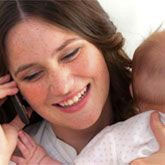 1-Hour Telephone + 1 E-Mail Consultation Package
1-Hour Telephone + 1 E-Mail Consultation Package  Express Sleep Plan
Express Sleep Plan  Express Sleep Plan Consultation Package
Express Sleep Plan Consultation Package  Essential Keys Newborn Sleep e-Book Bundle
Essential Keys Newborn Sleep e-Book Bundle 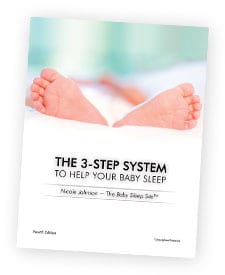 The 3-Step System Silver Package
The 3-Step System Silver Package 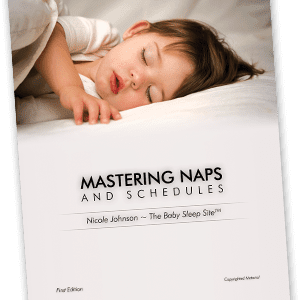 Mastering Naps and Schedules Silver Package
Mastering Naps and Schedules Silver Package 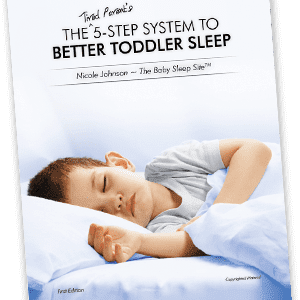 The 5-Step System to Better Toddler Sleep
The 5-Step System to Better Toddler Sleep 

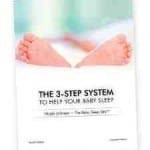

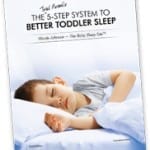

Heather says
Nicole, you’re absolutely right, it’s not fair to blame moms at all for breastfeeding problems. I have certainly had my fair share of problems and unfortunately I got so much bad advice even through medical professionals it was hard to know what to listen to. That’s why I think it’s very important to point out that scheduled feeding in the early months can lead to a lack of supply (as happened in my case, I was feeding every 4 hours at the suggestion of my lactation consultant, as my baby was gaining weight well. This turned out to be disastrous for my milk supply.) Anyone planning to encourage scheduled feeding in a breastfed baby should be aware that it can lower your supply. I know it works for some moms but never worked for me. My baby could go just fine on a 4 hour schedule but I did not produce enough milk after 2-3 days.
If baby is getting not enough hindmilk because of moms OVERSUPPLY, it is possible to deal with this issue while continuing to nurse on demand, by switching sides every x hours.
http://www.mother-2-mother.com/blockfeeding.htm
(My LC showed me how to feel for milk remaining in the breast… the breast should feel softer with no lumps when it is fully drained.. I appreciate that some women who have larger breasts might find it difficult to tell, without practice. Personally I had to learn because i get plugged ducts if I don’t make sure the breast is drained well.)
Jill says
I am glad I read this article today. My daughter is 3 months and I am breastfeeding. She still eats every 2-2/12 hours during the day, but only getting up once to eat at night if at all. I sometimes find it stressful that she won’t go longer between feedings since I am a stay at home mom with a 2 year old to care for as well. And on top of that her naps usually only last 30 minutes or less. She’s so overtired by time 6:30pm hits, she nurses for a very short period of time and falls fast asleep. She’ll then usually wake up an hour or less later to eat more, but then sleeps until 4 or 5 am to eat again and then back down. I guess it was nice to hear that her “schedule” is normal. Any suggestions to why she might be taking such short naps? I do rock/walk with her until she is almost asleep, but not completely asleep before putting her down.
Heidi says
My nine month old son has always been predictable in the sense of having the same stretches of time between naps and eating. The hour changed more when he was younger, but recently it’s become more consistent. He still breastfeeds every 2-3 hours and is very hungry for it when it’s time. At night he goes much longer stretches. His digestive system is very sensitive though and he has several food allergies. Since he was born it has been his digestion that has interfered with sleep more than anything else, even though he and I both avoid all allergens that we have discovered. I have had to learn to let go of my image of total order regarding our lives together and learn to accept that every day is a bit different. I think it has actually been good for me to have to let go of needing to always be in control of how things go.
Laurie says
My almost 11 month old daughter has done well with going to sleep and waking for the day at nearly the same time each night, and has a routine schedule for her non breastmilk meals to the point that she also has her BM at around the same time each day. However, we have yet to find the perfect daytime routine/schedule which yields consistent napping and cures us of night waking. We tried less frequent feedings and found these to cause her to wake every 2-3 hours at night. When she was about 8 mos, we moved back to breastmilk every 2-3 hours and it has yielded the best sleep so far. During the week, she is bottle fed her breastmilk though so in my mind it eliminates the fore/hindmilk issue as I drain boobie on the pump and she gets it all mixed together in the warming process.
For us, offerring her the bottle every 2 hours seems to trigger her to know “ok, this is my awake and later I will sleep.” sometimes on the weekends I go up to 3 between breastfeedings if we are out and about and she is generally ok with this.
My greatest concern though has always been her eating HABITS. I want her to develop healthy eating habits as she grows and begins to make her own choices. Having a healthy snack, breastmilk, is my way of starting her positive food relationship early.
Natalie says
My baby was one of those inconsistent babies – still is, in fact. But the thing is, I didn’t realize that a “routine” didn’t have to be by the clock. It took me many months to realize that a routine/schedule could just be doing the same things in the same order and being awake for a certain period between naps. In that way she actually was pretty consistent during the day… she always wanted to nurse immediately upon waking, and she played for a certain amount of time, then she wanted to nurse and go to sleep for a while. How long she slept varied a lot.
It wasn’t until she went to 3 naps a day at 6-7 months old that she was far more predictable about naps in terms of what time. And still, waking up wasn’t by the clock so things would shift by an hour or more each day. Even now, at 2 naps a day and 1 year old. Our day always depends on a lot of factors.
On one hand that could drive me crazy. On the other hand that has made for a very versatile, adaptable baby! I have the ability to shift things around to suit our day. And for the most part she’s always been a very happy, energetic, outgoing child, as long as she gets naps in there somewhere. Having a child has definitely taught me to go with the flow!
Carol says
Hi Nicole,
I enjoy reading your newsletters, I have an 8 month old that has been difficult to get on a schedule, even now…Thankfully he is finally sleeping good at night (from 7 to 11 hours straight in a period of 11 hours) but since then he is been very inconsistent with his naps. He is very active and he does not want to miss out on anything during the day…Now we are trying to do two naps one in the morning and one in the afternoon but they sometimes are short naps (30 to 45 minutes) but sometimes he does only one.
Anyways I wanted to comment on the breastfeeding issue, I was breastfeeding him on demand and from one breast in one feed and then changing to the other breast to “empty my breasts” and provide my baby with the hind milk and he was not gaining enough wait, the lactation consultant told me to feed him for 10 to 15 minutes from each breast and not to last more than 20 minutes in each but feed him from both breasts. Doing this he started to gain weight properly and not as I was doing at the beginning!
Nicole says
@Carol I know the feeling of having a baby who doesn’t want to miss the party! 🙂 Some babies do not lengthen their naps until they are routinely taking just two naps per day, evenly spaced in the day. Hang in there! Thank you for sharing your breastfeeding story! It goes to show all babies are different and I’m glad the Lactation Consultant was able to help!
@Natalie That’s great you’ve developed a solid routine with your baby and can enjoy the days as they come. Thank you so much for sharing!
@Laurie That’s great you’ve found what works for your daughter! At 11 months, I’d expect her naps to be approximately 3 1/2 to 4 hours apart, if that helps. I know it’s tricky! I agree about the healthy relationship with food. The good thing is that it’s learned behavior to overeat. My sons can be in the middle of a cookie and say “I’m full.” and put it down. It shocks me every time! I don’t know if I could. 😉 Thanks for commenting!
@Heidi I’m glad things are going well with your son! I’m sure allergies must present more challenges than the average family, but it sounds like you are doing great! 🙂 Thanks for commenting.
Heather says
Moms whose babies were not getting enough hindmilk by feeding every 2 hours, were probably following not breastfeeding properly.
One side should be fully drained before starting on the next. Even if that takes 2-3 feeds to accomplish. And a baby who feeds that frequently will probably only need to be fed off of both sides later in the day, as supply drops, if at all.
Naomi says
As you suggest, it depends on your baby. My 4 month has been on routine since day 1. He falls asleep at the same time every night and gets up at the same time everyday, no matter what I do (it is 6pm – 5 am and I have tried to change it to 7-6 but to no avail). He is so routine that even his bowel movement is the same time everyday! So he has done well on a 3 hour feeding routine (started at 2 months) and now a 4 hour routine. As mentioned in the article he doesn’t even cry to eat, he just know it is coming and takes a full feed at these intervals.
Katie says
In the beginning, I tried to get my son on the “breastfeed every 3 hour schedule” because I thought that was what I was “supposed” to do. But for the most part that didn’t work and I always felt it was more natural to feed him on demand, so he pretty much ate every 2 hours until he was about 3 months old. And a sleeping schedule never really worked until he got a little bit older, especially for naps. Now that he’s one, he’s got a more predictable routine. As an infant, my son sounds like he was a lot like your first baby Nicole, so I read the stories about your son with great interest and appreciation!
Nicole says
@Katie I think both my boys were 3-4 months old before we could even think about going past two hours! 🙂 I’m glad we are not alone and thank you for sharing!
@Naomi Wow! I have heard of very predictable babies down to the pooping schedule. I just can’t even imagine what that looks like. A Type-A personality’s dream. 😀
@Heather Hmmm… I don’t think I would have known when my breast was empty or not. They were sometimes when I was overly full, but, overall, once we were past the newborn stage, they stayed the same until I went way too long without breastfeeding. If he only ate on one side, I’d always start on the other at the next feeding. And, if he ate on both sides, I’d start the opposite side at the next feeding. I was pumping a lot, though, so it was a bit different in that both were drained during pumping sessions. I don’t know that all Breastfeeding moms would know whether their breast was emptied. Of course, you can always offer the same side, first. I always hesitate to blame the moms, though, because the moms I talked to were already working on it with their doctor and/or LC. They could have done everything “right” and it doesn’t mean it worked out the way they expected it to, just like many things with parenting.
Lauren says
I love this site, and I don’t want to criticize. But I feel I need to point out that you got it exactly backwards with the breastfeeding thing. The longer you go between feedings, the more your breasts fill up, and the more FOREMILK your baby will get. If you feed frequently, you aren’t letting your breasts get really full, and therefore your baby will actually get higher fat milk throughout all of his feedings.
“More frequent feedings are associated with higher fat milk.” (https://www.parentingscience.com/calories-in-breast-milk.html)
“Frequent breastfeeding results in a higher fat content” (http://www.mamivac.com/en/knowledge/midwives-lactation-consultants/lactation-consultation/composition-of-breast-milk.html)
The fuller the breast, the lower the fat content of the milk; The emptier the breast, the higher the fat content of the milk (Daly 1993).
Frequent nursing increases the quality fat content in your milk. (http://www.breastfeeding-problems.com/cue-feeding.html)
The only time that feeding frequently and for short periods of time could result in a baby getting less fatty milk is if the mother has an OVERSUPPLY of milk (which she would know, since she’d always be on the verge of engorgement). In that situation, frequent short feedings would probably not empty the breast, and would give the baby more foremilk than hindmilk, and might result in poor weight gain. But oversupply is generally more of a problem at the beginning of breastfeeding, not once you’re past the newborn stage.
I know you breastfed your children, so you know something about it, but I still think you should be very careful about the advice you give about breastfeeding, because what you wrote in this article might make an uninformed breastfeeding mother try to space her baby’s feedings out more when they shouldn’t be, and THAT could cause problems (slowed weight gain, lowered milk supply, etc).
Nicole says
@Lauren Thank you for your comment! I should have been more detailed, you’re right. This is true, too, but it depends on the mother’s milk supply. If your baby feeds quickly and takes just a partial feeding, but your breast is already full, your baby will not get the fattier hindmilk. I think of it as if a baby feeds just a few minutes on each side rather than a full feeding on one breast, for example. When I used to pump I had SO much milk in the morning (I used to pump 8-9 ounces in one sitting and my son only ever ate 4 out of a bottle, though I wouldn’t say I had engorged breasts nor over-supply that I knew of :)). So, it depends on the milk supply and the baby and how much they are eating, if you know what I mean. If your breast continues to make milk between short feedings, your baby may only get the foremilk if he is “snacking” since you are feeding more frequently. I’m definitely not saying this applies to all situations, but I have talked to a few moms where this happens and they were feeding too frequently. As with anything, there is likely a happy medium. For us, 3 hours was the “right” span of time once my son could go three hours. Thanks again for clarifying and commenting!
Let me also add that moms/families should always talk to their doctor and/or lactation consultant, if they have any questions about breastfeeding. I was only trying to illustrate that there are sometimes reasons to consider a schedule and, sometimes, as Lauren pointed out, there are times to NOT have a schedule. Find what’s right for your own situation and not necessarily what the books say.